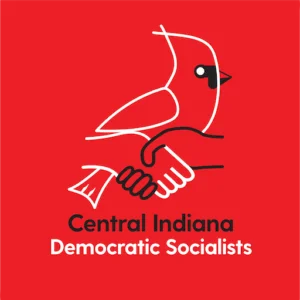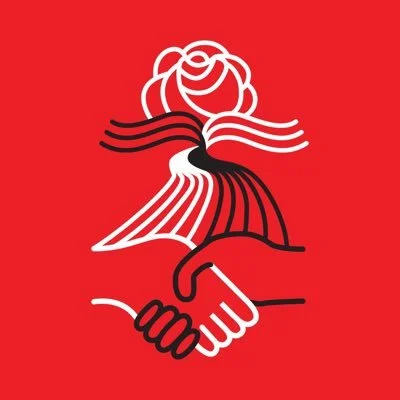

Poems From Our Martyrs
by R.K. Upadhya
It is the two year anniversary of October 7th, of Palestine’s al-Aqsa Flood and the beginning of Israel’s genocidal response. Only two years; has it not felt like a lifetime? And is there anything left to say? It has been two years of mass murder and indiscriminate killings, with full backing from our government. Our protests and mobilizations have failed to halt the genocide, even as public opinion has shifted dramatically. Today, we are even more on the defensive, with domestic repression ratcheting up to unprecedented levels.
How do we maintain our sanity, our courage, and our commitment to the struggle in such times? How do we maintain hope when faced with such insurmountable evil?
I have never much liked poetry. But somehow, it has been poems that have brought me the most emotional and spiritual clarity over the past two years. I think this has less to do with the poems themselves, than who they were written by: refugees, prisoners, martyrs. Despite being written in the most unimaginably harsh conditions, their words are still somehow infused with hope and love – and a source of strength for all of us.
This poem, “I Grant You Refuge”, was written by the Palestinian poet, novelist, and teacher Hiba Abu Nada, on October 10th, 2023 – a few days after the al-Aqsa Flood, as an indiscriminate hail of missiles, bombs, and shells from the IDF were falling across Gaza:
I grant you refuge
in invocation and prayer.
I bless the neighborhood and the minaret
to guard them
from the rocket
from the moment
it is a general’s command
until it becomes
a raid.
I grant you and the little ones refuge,
the little ones who
change the rocket’s course
before it lands
with their smiles.
[…]
I grant you refuge
from hurt and suffering.
With words of sacred scripture
I shield the oranges from the sting of phosphorous
and the shades of cloud from the smog.
I grant you refuge in knowing
that the dust will clear,
and they who fell in love and died together
will one day laugh.
Ten days after she wrote this poem, Hiba was killed in her home in Khan Younis by an Israeli airstrike.



Countless hundreds of other prominent Palestinian writers, poets, artists, and teachers have been murdered by Israel over the last two years. Thus, one small means of resistance is to defy this attempt at cultural erasure, and to protect and reproduce Palestinian art. In San Antonio, one effort around this that I was pleased to be a part of was the Palestine Cinematheque, which showcased documentaries, films, and shorts produced by Palestinians. On February 25th, 2024, we showcased “Where Should the Birds Fly”, a documentary produced in Gaza, centering on a young girl and her experiences during Israel’s 2008-2009 assault on Gaza. It was a harrowing film, with raw uncut images of death and destruction from Israel’s bombs; but also, of survival and resilience.
The final shot of “Where Should the Birds Fly” is of a little girl, an orphan, who the director met during the course of the filming. She’s playing on the beach with other orphans. The director closes out the movie reminiscing about her own childhood memories of the beach, and a simple poetic conversation that was about nothing – and yet, everything:
I remember when I played on the beach. Life seemed simple. We had fun. My dad would carry me on his shoulders.
Once I asked him, ‘where does the sun go?’ He told me, ‘the sun just shines somewhere else, so that others may see. A sunset here does not mean the sun is gone.’



Out of necessity, Palestine has developed an incredible culture of resistance and resilience, particularly around its martyrs. It is very different here in the US, where we can struggle to talk openly about death. But things shifted on that day that we screened the documentary. February 25th was also the day that Aaron Bushnell, an active-duty member of the US Air Force, self-immolated in protest of US complicity in Israel’s genocide. His succinct words about what the genocide in Gaza meant rang out around the world: “This is what our ruling class has decided will be normal”.
Of course, Aaron was not just another soldier, but an anarchist and a member of San Antonio’s mutual aid network. Some of Aaron’s close friends and comrades were there during the screening that day. I still remember glancing over and seeing their stunned faces as they shared the news with each other. I wouldn’t know until later what had transpired, but I knew it was devastating.
It wasn’t until some time later that I realized I had known him too. I met him once, right when he was getting involved with the Left. He had come to the opening of a local socialist space, and we had struck up a conversation. I learned about his background and interests, and I gave him a quick spiel about the different niches of the Left and different things he could get involved in around the city, such as mutual aid work. I didn’t see him again, or think about him – until he became an international news story.
This is part of what we can expect, as the flames from Gaza spread, as repression deepens and our movements come under increasing fire. People you know may one day disappear forever; others you met once and forgot about, will suddenly re-emerge in headlines. This is where, as with many things, Palestine has been ahead of the curve; as Alex Birnel said at a speech at Aaron Bushnell’s vigil, Palestinians have always “celebrated, cherished, and remembered their martyrs”. We will have to learn to do the same, to embrace our martyrs, those among us who give up everything for the struggle.
Aaron had once planned to have a uniform-burning ceremony when he was able to finally quit the military. He wanted to recite the poem “The Empire Raised Me”, from Anansi’s Library:
I was a soldier for her before I knew her name
Raised to die before I fully knew mine
Crafted by hand for eternal war
Raised for combat as the empire’s ward
[…]
Now the muzzle is at my back
The boots are at my door
The guns are all racked
And like my ancestors before
A hail of bullets will set me free
Express one day delivery
From your state god to thee
Expect from your lord no loyalty
For I was raised a soldier.



On September 25th, 2025, Assata Shakur passed away in Cuba, where she had been in exile since 1984. Her time in the revolutionary ‘60s and ‘70s was of an intensity that is hard to imagine in today’s US: a veteran of the Black Panther Party and the Black Liberation Army, godmother to Tupac Shakur, imprisoned for allegedly shooting down a police officer, broken out of jail by a communist militia. There can often seem a world of difference between Palestine and the US; but the truth is that the parallels have always been here.
Assata died free. But her vision of freedom and liberation never came to fruition. Was the vision even clear in her youth? Even if it wasn’t, she nonetheless gave the struggle her all. And this is the question we must ask ourselves as well: are we prepared to give the current struggle our all, even if victory will not happen in our lifetimes? Even if we can’t even imagine victory?
Assata might have posed the question a different way. She may have asked us if we believe in living. From her poem “Affirmation”, from her autobiography:
I believe in living.
I believe in the spectrum
of Beta days and Gamma people.
I believe in sunshine.
In windmills and waterfalls,
tricycles and rocking chairs;
And i believe that seeds grow into sprouts.
And sprouts grow into trees.
I believe in the magic of the hands.
And in the wisdom of the eyes.
I believe in rain and tears.
And in the blood of infinity.
[…]
I have been locked by the lawless.
Handcuffed by the haters.
Gagged by the greedy.
And, if i know any thing at all,
It’s that a wall is just a wall
and nothing more at all.
It can be broken down.
I believe in living
I believe in birth.
I believe in the sweat of love
and in the fire of truth.
And i believe that a lost ship,
steered by tired, seasick sailors,
can still be guided home
to port.



On March 14, 2025, federal agents arrested Leqaa Kordia. She was a Palestinian student who had attended pro-Palestine protests at Columbia University, and the second one to be arrested, after Mahmoud Khalil. She was born in Jerusalem; over 100 of her family members have been killed in Gaza since October 7, 2023. She has now been imprisoned for over six months in the Prairieland Detention Facility, about a half-hour drive south of Fort Worth.
On July 4, a small group of anarchists and antifascists staged a noise demo outside of the prison. Something went awry, and shots were allegedly fired; now 17 comrades have been jailed, facing spurious terrorism charges. On September 22nd, Trump signed an executive order declaring “antifa” as a domestic terrorist organization. A few days later, Trump signed National Security Presidential Memorandum 7, declaring a national counter-terrorism initiative for the FBI to uncover and disrupt “anti-fascist” networks.
Five years after the George Floyd uprisings, and two years after the al-Aqsa Flood, there should be no more doubt: we all live under the same Empire. The savagery of the war against Palestine has spread far beyond the region; in the US alone, it is impossible to keep proper track of the pace and scale of state violence, and how quickly basic rights and norms once taken for granted are disappearing. There is no more pretense of human rights or the rule of law; no more pretense of the ruling class wanting to negotiate. As President Gustavo Petro of Colombia – a former guerrilla fighter and revolutionary – said earlier this year at a meeting of the Hague Group: “Gaza is simply an experiment by the ultra-rich…on how to respond to humanity’s rebellion.” Put differently: one way or another, the fate of Gaza is the fate of humanity.
On June 4, Leqaa wrote a poem and statement from her prison cell. I’ll end with her words. They speak for themselves. As all of our martyrs’ poems do.
Peace be upon you, and the mercy and blessings of God.
Peace be upon you, O Palestine.
Peace be upon Gaza, the steadfast and proud.
Peace be upon a people who taught the world
the meaning of patience, dignity, and resilience.
Peace be upon the mothers
who buried the remains of their children on street corners
—and still chose to keep Living.
Peace be upon the fathers
whose eyes wept for the first time
—and oh, what a brutal first time it was.
[…]
Peace be upon our noble martyrs, precious and beloved.
Peace be upon our free, glorious prisoners who are
charting the path to freedom.
[…]
To you, the free people across the world,
the rebels, the defiant, the unwavering
—peace be upon you and my deepest respect.
I write to you from a cold place, hoping my words
may carry a little warmth amid the tragedies, the suffering
and the unimaginable stories I witness here.
Still, I write with full certainty that we will all be freed
from this cruel injustice. And I believe, with all my heart
that I will meet you soon as a free woman—God willing.
From me—a granddaughter of the Nakba—to you,
the generation of return and the makers of freedom.
Accept my greetings and reverence.
The post Poems From Our Martyrs first appeared on Red Fault.
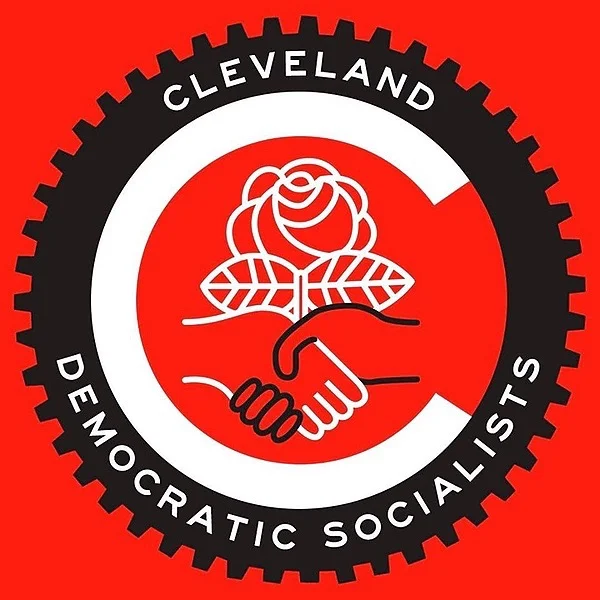

Caucuses in Cleveland DSA
Author: Julie C
The purpose of this piece is to notify Cleveland DSA members that there are now two local caucuses in our chapter and to give some brief history of internal politics in our chapter from a personal and limited perspective. These caucuses do not hold any formal positions of power within our chapter, and in fact are not “officially affiliated” with DSA Cleveland, but they were created in order to bring comrades together based on shared identities and vision.
The Black and Brown (B&B) Caucus was announced at or around the time of the June 2025 General Meeting. Inspired by Detroit DSA’s Black & Brown Alliance, as well as DSA’s national Multiracial Organizing Committee, the purpose of the B&B caucus is to bring together members of color and focus on ways to increase our diversity within the chapter, and working class power in Northeast Ohio’s communities of color. The caucus is not exclusive to members of color and there is no formal leadership or approval process for planning events for the B&B Caucus. If you are interested in this caucus, please reach out to Shay or Emma B on our member Slack.
The Praxis Caucus was announced at the September 2025 General Meeting and its Points of Unity can be found here. This caucus was formed with the intention of bringing members together to form a long-term and proactive vision for DSA in Cleveland and the surrounding areas. While the founding members have ideas on where to start, the current goal is to bring more members together to help develop the vision for our chapter in a way that aligns with our Points of Unity. All Cleveland DSA members are welcome to join meetings and events held by Praxis. If you are interested in this caucus, please reach out to Justin E or Julie C on our member Slack.
Background
When I joined Cleveland DSA (fall 2020), our chapter was very focused on local issues and local organizing. We were not fully plugged into the national org structure or any particular working group/committee in any serious or noticeable way. Also, from my perspective, while there were some political differences among comrades, our membership seemed rather homogeneous and came to consensus regularly. The most obvious difference was the approach to electoral politics and our biggest political “battle” was whether or not to endorse Nina Turner in 2021. This issue drew our largest General Meeting crowd at that time (over 60 members) and the motion failed with about 63% of the vote (it needed 66%).
Since then our chapter has experienced sizable growth in our membership which has naturally magnified the differences in perspective of how to achieve our shared goals. The national organization is more visible and connected to the work that we do through the use of resources available to us as well as some of our members being plugged into the work of different national committees. We also have at least close to a dozen members who belong to various national caucuses. At our October 2024 General Meeting, we passed a much more rigorous endorsement policy and that policy was put to the test this year. A substantial amount of work was put into a project proposal that would see a local DSA member endorsed in their run for city council. That proposal failed 64 nay vs 51 yea after a zealous debate at our May General meeting (5/8/25). The Praxis caucus formed with core members who voted yea on endorsement.
During and after the May General meeting, the political strategies among Cleveland DSA members have been more clearly outlined through internal debates and discussions. To be clear, DSA is a socialist organization. We believe in transitioning our society from capitalism to socialism and our “political” differences stem from what is the best way to do that. And even more specifically at our chapter level, what should our focus be in order to contribute to that outcome. While the differences in political opinion at times seem great, we are very much working towards the same goal.
- There are many lists and articles about the national caucuses but I am not linking any here since there is no “official” list that broadly summarizes them.
The post Caucuses in Cleveland DSA appeared first on Democratic Socialists of America.


The Goth Rock Opera of Our Present
By Tiffany P
“Gather around, kids! I’m going to show you how to use drugs.” – Terrance Zdunich
I watched Repo! The Genetic Opera (2008) when it first released. Back then, I enjoyed the music, wacky characters, and gore. Today, the movie hits different. The movie takes place in the not-too-distant future. That future has arrived.
GeneCo is a company that specializes in organ transplants. At first, the organ transplants were necessary because of a pandemic that caused mass organ failure. GeneCo harvested organs from the dead and sold them to the living. Many could not pay for the surgery so they signed a payment plan with the company. Rotti Largo is the founder of GeneCo and should look very familiar to many of us today. He is your typical selfish sadistic billionaire. He lobbied a bill through Congress to make it legal for this private company to murder citizens if they are 90 days late on
their payments. By the time the movie starts, the people are tired of living in fear. Prop 598 would make it illegal for GeneCo to repossess organs. GeneCo gaslights the citizens and says they need the ability to murder your neighbor or else they might run out of organs to save your life. This is a typical billionaire tactic that keeps citizens divided and voting against their own interests.
Working for GeneCo is a more extreme version of what it’s like to work in corporate America today and certain members of government are trying to get us even closer to this dystopian reality. They are attempting to give more power to the employer, less power to the worker, reduce safety in the workplace, and even want to
eliminate child labor laws.
The Repo Man is the one who legally murders citizens to reclaim stolen property. By property, they mean someone’s heart, spine, or any other organ. You would think anyone who would do a job like this must be a monster. Far from it. The movie does a very good job making the Repo Man a sympathetic father. However, his current job of cutting out someone’s heart with no anesthetic while it’s still beating has taken a major toll on his psyche. He develops a split personality to hide behind to do much of the dirty work. This reminds me of slaughterhouse workers of today. They murder animals who struggle and scream for their life all day long. They are paid very little and are often times undocumented workers. This allows the company to abuse and threaten them. Because of the violent and cruel nature of the job, slaughterhouse workers will either quit because of extreme PTSD or develop violent tendencies outside of work. Meat packing factories are also often times staffed by undocumented workers. They have very few safety standards and finger and hand amputations are common there.
Genterns are a type of female worker at GeneCo. You see them perform various jobs such as surgery and inventory. They are expected to perform sexual acts for their employer, dress in very skimpy clothing, and can’t complain if their co-worker is suddenly murdered in front of them. Clearly, Genterns need to form a union. It is not unusual in today’s workplace for a woman to feel pressure to be more sexualized or even perform sexual favors to get promoted. Harassment and abuse are swept under the rug and employees are expected to suffer in silence. Employees at GeneCo can be forced into contracts that prevent them from leaving the company alive. They are in a type of indentured servitude. They work for the company in exchange for a surgery, but if they leave then the Repo Man will kill them. Today, companies want their employees to sign contracts which prevent them from leaving. This type of contract emboldens the employer to abuse their employees, and if the employee chooses to leave then the employer will steal their paychecks.
We are not shown this world’s economy directly, but we get a sense there is the very poor and the very rich with not much in between. GeneCo spends a lot of money advertising for cosmetic surgeries. They encourage people to buy a name brand spine or spleen as a fashion statement. Despite being poor, many people have these surgeries because they sign up for a payment plan. This makes the surgeries more affordable. This is reflected in the Labubu craze going on today. In previous decades, cosmetic sales would rise during financial turmoil and depression. Labubus make you look cool to your friends at a relatively affordable price. People nowadays understand they will never afford a house or have financial security so why not buy a $30 toy? It’s not as if saving that $30 will suddenly allow them to buy a house. Many buy Labubus because they are depressed and these little toys provide a glimmer of joy in their day.
The Genetic Opera in the movie itself is a massive advertising campaign. It is a yearly event that is run like a mega church. There is a band and a lot of spectacle. People testify on live TV to how GeneCo helped them. A single mom needed a kidney transplant and said the company showed her sympathy, but the company will have no problem turning her children into orphans if she is late on her payments. This reflects the constant flood of propaganda we see today. Companies spend millions to develop brand loyalty to keep their customers coming back for decades. None of us are immune to propaganda. Remember, they need us more than we need them.
Repo! The Genetic Opera will be playing at Hyperreal Film Club in Austin on October 6th at 7:30pm.
The post The Goth Rock Opera of Our Present first appeared on Red Fault.
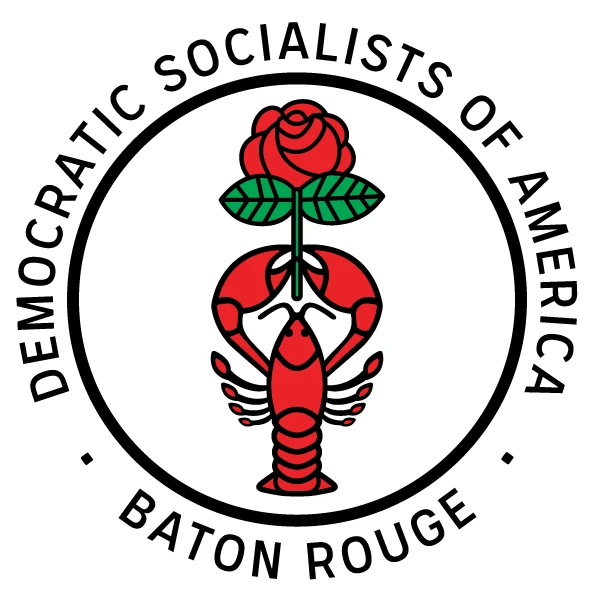

Statement on the Inexcusable Arrest of the Seven Members in Students for a Democratic Society at LSU
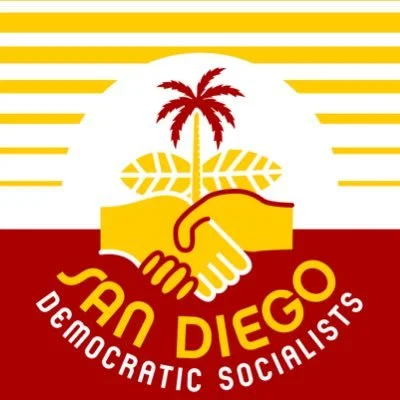

Fight fasciscm! Vote YES on Prop 50
DSA San Diego has voted to endorse and campaign for Proposition 50, which will be on the California ballot for a special election on November 4, 2025. If it passes, Prop. 50 would implement a temporary redistricting of California’s Congressional seats to counteract Republican gerrymandering by redrawing five Republican seats to favor Democrats until the [...]
Read More... from Fight fasciscm! Vote YES on Prop 50
The post Fight fasciscm! Vote YES on Prop 50 appeared first on Democratic Socialists of America | San Diego Chapter.


Yes on Prop 50 – Activities
Can’t make one of our DSA San Diego canvasses? There are plenty of other ways to get involved in this fight: Donate to California DSA’s PAC! (Donate here) This helps us print DSA-branded literature and purchase canvassing tools for our outreach efforts. We rely entirely on contributions from members and supporters. Every little bit helps! [...]
Read More... from Yes on Prop 50 – Activities
The post Yes on Prop 50 – Activities appeared first on Democratic Socialists of America | San Diego Chapter.
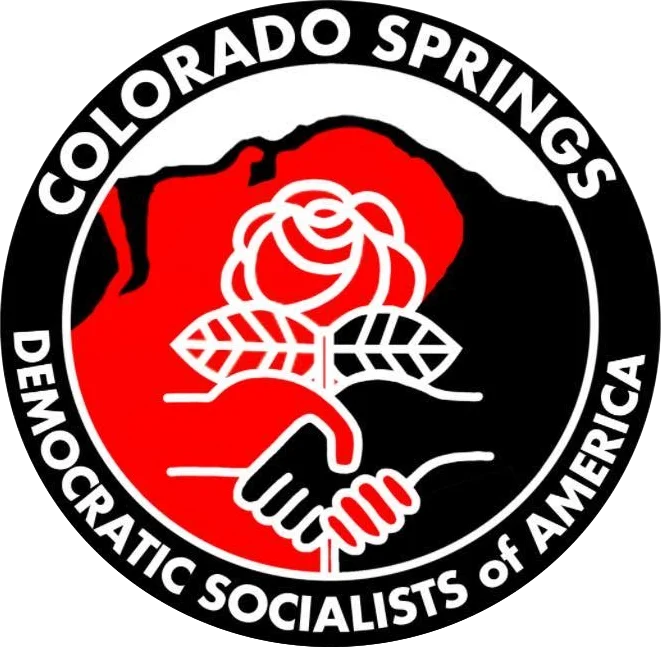

Colorado Springs DSA stands in solidarity with D11 School board candidate Charles Johnson against racist attacks
The Colorado Springs DSA strongly believes in the power of public education to empower and to liberate. We believe that the best people to decide how and what to teach are professional educators. We have been deeply troubled at the consistent interference from the extremist school board in District 11 of Colorado Springs as they deprive teachers of the very agency that allows them to excel. Their decisions are becoming ever more concerning. No novels in high school English classes. Pages physically cut out of health textbooks. And just last week we understand they cut from the curriculum the incredible abolitionist, writer, and orator Frederick Douglass.
Instead of cutting Douglass from the curriculum, we choose to live by his words, “I would unite with anybody to do right and with nobody to do wrong.” We choose to unite with Charles Johnson, a union-endorsed candidate for the school board in D11. We know that he is trying to do right, even as the allies of the extremists now vying for seats on the board play into the shameful, racist tradition of painting Black men as criminals by sending out a mass text showing the mugshot from Charles’s 2020 arrest. True to what we know of him, he was guilty only of, as John Lewis loved to say, making good trouble.
In 2019, a good friend of Charles, De’Von Bailey, was shot in the back and killed by the Colorado Springs Police Department. Charles organized for greater accountability for the department. At COS DSA, we know that Black history is fundamental to American history. Maybe if these extremists spent more time studying it instead of erasing it, they would know how predictable it was that Charles was then singled out for arrest by CSPD. But they don’t know, and we suspect they just don’t care.
We stand in solidarity with Charles Johnson. Charles has been a friend to many of us who are organizers and activists in Colorado Springs, and we know him to be kind and insightful. A product of D11 himself, his commitment to teachers and students in the district is an inspiration. As the Colorado Springs Education Association prepares to strike on October 8th, we call on everyone able to show teachers their support by joining them on the picket line and by standing with Charles and the rest of the union-endorsed school board candidates come the November election. Their only goal is one we all surely share; outstanding public education in this city we love.


Colorado Springs DSA stands in solidarity with the Sumud Flotilla
On 10/1/2025 the Global Sumud Flotilla was intercepted by the IDF while trying to deliver life saving aid to the Palestinians living under a blockade in Gaza. A coalition of organizers, humanitarians, doctors, artists, clergy, lawyers, and seafarers across 57 countries were just off the coast of Gaza, intending to break Israel’s blockade with much needed humanitarian aid, when they were violently intercepted by the IDF.
We condemn this act of violence against a group of peaceful humanitarians working to end the man-made famine imposed upon the Palestinians in Gaza. While Israel continues to actively and mercilessly bomb the Gaza strip to complete its goal of genocide and ethnic cleansing, the Global Sumud Flotilla was a beacon of hope to those waiting for much needed relief. The Global Sumud Flotilla poses no threat. They are unarmed and only carrying supplies needed by the population of Gaza such as baby formula, medical supplies, and food.
To meet a peaceful convoy of humanitarian aid with such violence and little regard for human life is appalling. The response from Italy to try and force the Global Sumud Flotilla to turn away, siding with the IDF and betraying their own citizens, is shameful. The United States is turning a blind eye to the U.S. citizens that have been kidnapped from the convoy while it continues to be involved with and enable the illegal and immoral actions of the illegal occupation known as Israel.
We are living in a moment which, when looked back on, everyone will say they have always been against these violent acts. We must keep hope, because to keep hope is to believe truly and honestly that Palestine will be free.
Israel must release all the hostages they have kidnapped from the Global Sumud Flotilla, they must ensure their safety, and they must allow aid into Gaza. As activist and arguably one of the most famous members of the Global Sumud Flotilla, Greta Thunberg, has said, “I'm not scared of Israel. I'm scared of a world that has seemingly lost all sense of humanity.” We must not lose our humanity and continue to uplift the Palestinian cause as it is just, it is moral, and it is freedom, not just for the Palestinians, but for all of us. Because none of us are free until all of us are free. We stand with the Global Sumud Flotilla, we condemn the violence and kidnapping, and we stand with the Palestinians in their hope to someday soon be truly free.
